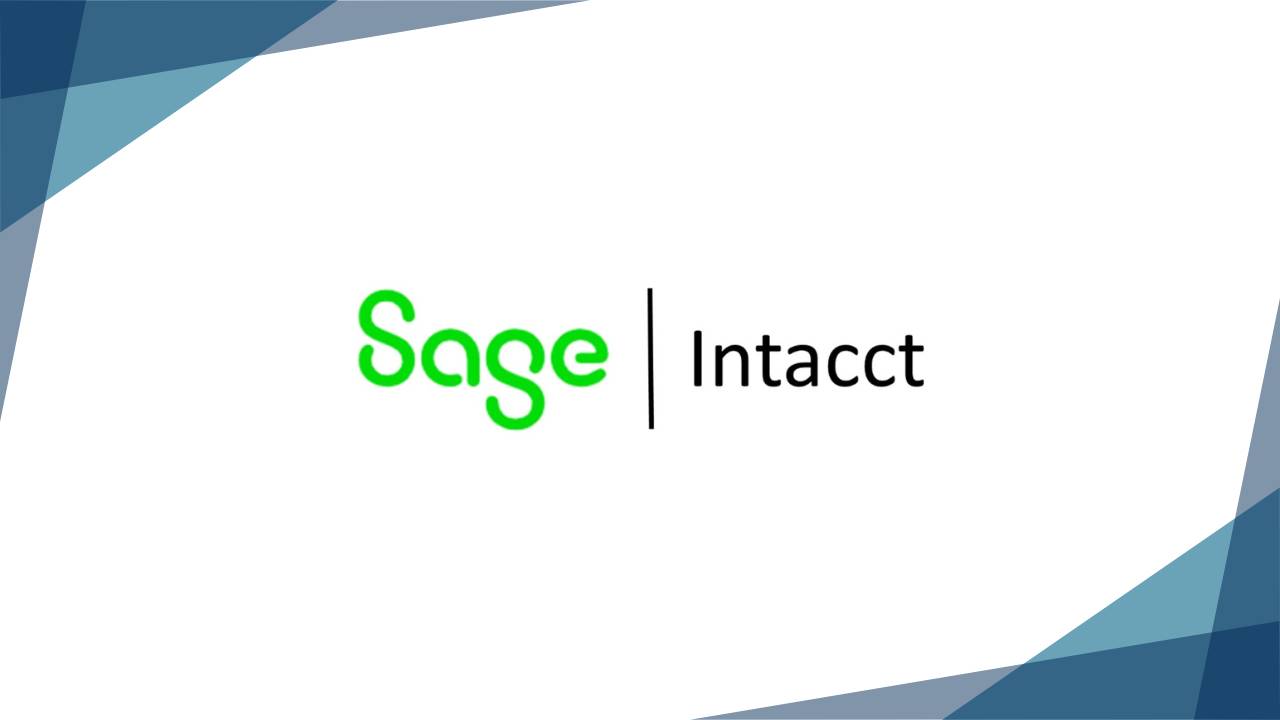Explore the latest FinTech trends for 2024 in our comprehensive article and learn how Sage Intacct's cloud-based software can help your business stay ahead.
Every year, new financial technology trends emerge, revolutionising how businesses operate and interact with customers. Historically, the evolution of financial technology has been a remarkable journey, from simple bookkeeping methods to today's sophisticated digital platforms. This progression has fundamentally altered the financial landscape, making transactions faster, more secure and far more integrated into our everyday digital experiences.
To thrive in today's increasingly digital economy, companies simply can not afford to ignore the newest developments in financial technology. The present state of financial technology is characterised by innovative solutions that streamline operations, enhance customer experience, and offer unprecedented access to global markets. This environment constantly pushes the boundaries of what's possible, offering exciting opportunities for those ready to embrace these changes.
With that said, let’s take a look at five of the biggest trends kicking off 2024.
1. AI in Business Financial Management
 Artificial intelligence (AI) is reshaping business financial management and streamlining operations across budget management, investment decisions, and asset management. AI's deep-rooted history in finance has evolved from basic machine learning to advanced algorithms capable of predictive analysis, risk management, and enhancing customer experiences.
Artificial intelligence (AI) is reshaping business financial management and streamlining operations across budget management, investment decisions, and asset management. AI's deep-rooted history in finance has evolved from basic machine learning to advanced algorithms capable of predictive analysis, risk management, and enhancing customer experiences.
In 2024, AI will continue to contribute significantly to cost reduction, with an NVIDIA survey revealing operational efficiencies and a 20% decrease in total ownership costs attributable to AI. Despite its transformative capabilities, AI in finance serves more as an enabler than a replacement for human expertise, enhancing productivity and fostering innovation within the industry.
2. Generative AI in FinTech
 Generative AI is revolutionising corporate finance, particularly in credit risk assessment and decision-making processes. By harnessing vast datasets, these AI systems can predict credit risks more accurately, leading to more informed and strategic financial decisions. For example, generative AI models process historical data and identify patterns that may not be obvious to human analysts, thereby enhancing the accuracy and speed of credit risk assessments.
Generative AI is revolutionising corporate finance, particularly in credit risk assessment and decision-making processes. By harnessing vast datasets, these AI systems can predict credit risks more accurately, leading to more informed and strategic financial decisions. For example, generative AI models process historical data and identify patterns that may not be obvious to human analysts, thereby enhancing the accuracy and speed of credit risk assessments.
Moreover, generative AI significantly personalises business financial services. It tailors products and services to individual customer needs by analysing their financial behaviour and preferences. This personalisation not only improves customer experience but also increases the efficiency of financial services. This shift towards personalised services marks a significant evolution in how financial services are delivered and experienced.
3. Blockchain Integration in Business Finance
 Blockchain technology is increasingly pivotal in business finance, offering transformative applications across various sectors. In supply chain finance, blockchain introduces transparency and efficiency. Transactions are recorded in real-time, allowing businesses to track the movement of goods and funds with unparalleled accuracy. This transparency reduces fraud and errors, leading to more efficient supply chain operations.
Blockchain technology is increasingly pivotal in business finance, offering transformative applications across various sectors. In supply chain finance, blockchain introduces transparency and efficiency. Transactions are recorded in real-time, allowing businesses to track the movement of goods and funds with unparalleled accuracy. This transparency reduces fraud and errors, leading to more efficient supply chain operations.
In cross-border transactions, blockchain technology is known for facilitating faster, more secure, and cost-effective transfers. Traditional cross-border transactions often involve multiple intermediaries and can be time-consuming and costly. Blockchain simplifies this process, enabling direct and secure transactions, thereby enhancing global trade efficiency.
4. Big Data and Analytics in Business Decisions
 Big data plays a crucial role in shaping business financial strategies. It allows companies to analyse market trends and consumer behaviour, enabling more informed decision-making. For instance, through big data analytics, businesses can segment customers based on purchasing patterns and preferences, leading to targeted marketing strategies and product development. This segmentation ensures that resources are allocated effectively, maximising return on investment.
Big data plays a crucial role in shaping business financial strategies. It allows companies to analyse market trends and consumer behaviour, enabling more informed decision-making. For instance, through big data analytics, businesses can segment customers based on purchasing patterns and preferences, leading to targeted marketing strategies and product development. This segmentation ensures that resources are allocated effectively, maximising return on investment.
Additionally, big data is fundamental in risk management. By analysing large datasets, businesses can identify potential risks and take proactive measures to mitigate them. This approach not only minimises financial losses but also aids in strategic planning. In essence, big data equips businesses with the tools to navigate the complexities of the market, ensuring they remain competitive and financially robust.
5. Digital Transformation in Banking and Corporate Finance
 Digital transformation in banking and corporate finance has profoundly impacted how businesses handle their financial operations. Digital payment systems are now fundamental, offering speed, security, and convenience. These systems enable businesses to process transactions faster than ever, greatly improving cash flow management. Additionally, the advent of open banking, which allows the sharing of financial information electronically and securely under customer consent, has opened doors for enhanced service personalisation and innovation in financial products.
Digital transformation in banking and corporate finance has profoundly impacted how businesses handle their financial operations. Digital payment systems are now fundamental, offering speed, security, and convenience. These systems enable businesses to process transactions faster than ever, greatly improving cash flow management. Additionally, the advent of open banking, which allows the sharing of financial information electronically and securely under customer consent, has opened doors for enhanced service personalisation and innovation in financial products.
Collaborations between traditional banks and FinTech companies further exemplify this digital shift. Such partnerships combine the reliability and regulatory expertise of established banks with the agility and innovation of FinTech firms. This synergy has led to the development of more user-friendly financial services, tailored to meet the diverse needs of businesses. Overall, digital transformation in banking is not just a trend, but a fundamental shift towards more efficient, customer-focused financial services.
Utilising Sage Intacct to Keep Up with FinTech Trends
 Sage Intacct is a cloud-based financial management software designed to help businesses manage their finances more efficiently and effectively. It stands out as a solution for businesses looking to adapt to evolving financial technology trends. The software offers comprehensive tools for accounting, cash management, and financial reporting, enabling businesses to streamline their financial processes.
Sage Intacct is a cloud-based financial management software designed to help businesses manage their finances more efficiently and effectively. It stands out as a solution for businesses looking to adapt to evolving financial technology trends. The software offers comprehensive tools for accounting, cash management, and financial reporting, enabling businesses to streamline their financial processes.
Let’s look at how your business can effortlessly stay up-to-date with the latest financial trends by using Sage Intacct:
- Integration with Emerging Technologies
-
Sage Intacct integrates seamlessly with AI and machine learning tools, significantly enhancing financial decision-making and data analysis capabilities. This integration means businesses can leverage AI-driven insights for more accurate forecasting and strategic planning.
The software's ability to streamline asset management and financial advisory processes is another key benefit. By automating routine tasks and providing detailed analytics, Sage Intacct helps businesses manage their assets more effectively, ensuring optimal utilisation and return on investment.
- Harnessing the Power of Big Data and Analytics
-
Sage Intacct's robust analytics and reporting features are instrumental in leveraging big data for informed decision-making. Businesses can analyse vast amounts of financial data, identify trends, and make data-driven decisions. The customisable dashboards and real-time financial reporting capabilities enable financial managers to monitor key performance indicators (KPIs) and financial health continuously.
The software's customisable dashboards and real-time reporting capabilities empower businesses to access and interpret their financial data quickly. This real-time access to financial information is crucial for responding rapidly to market changes and making timely decisions.
- Cybersecurity and Compliance
-
Maintaining cybersecurity and regulatory compliance is paramount for any modern business. Sage Intacct aids in this endeavour by offering robust security features and ensuring compliance with financial regulations. The software's security protocols protect sensitive financial data from cyber threats, ensuring that businesses' financial information remains secure.
Sage Intacct's compliance with financial regulations and its security features provide peace of mind for businesses concerned about data breaches and regulatory compliance. The software adheres to the latest financial standards and regulations, making it a reliable tool for businesses keen on maintaining high levels of cybersecurity and compliance.
Final Thoughts
Throughout this article, you have explored the dynamic landscape of FinTech trends for 2024, gaining insights into how technologies like AI, blockchain, and big data are revolutionising business finance. These trends highlight a fundamental shift towards more efficient, customer-focused financial services.
We’ve also underscored Sage Intacct's role in keeping up with evolving FinTech trends, demonstrating its effectiveness in integrating emerging technologies, harnessing the power of big data and analytics, and maintaining cybersecurity and compliance. To stay ahead, ensure your business utilises Sage Intacct for all its financial management needs.
Want to learn more?
Book a Sage Intacct Discovery Call Today